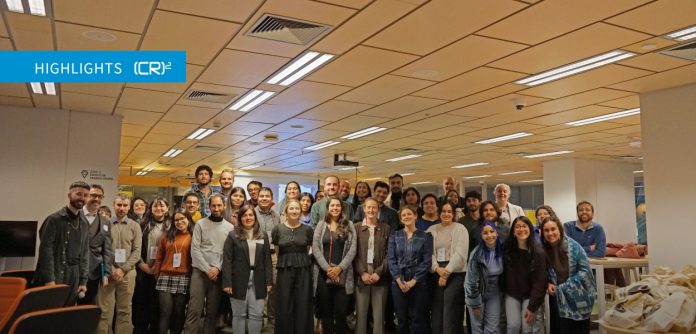The activity was part of the Winds of Change program, which seeks to share knowledge about climate change and sustainability between both countries.
This Monday, May 27, the Networking: University of Chile—Winds of Change initiative took place. This initiative sought to connect postgraduate students and young professionals from New Zealand and Chile to address common challenges related to climate change and the search for sustainable development strategies for the future.
The activity, organized by the University of Chile in partnership with the Winds of Change program of New Zealand’s Asia-Pacific Latin America Center of Excellence (LatAm CAPE) and the Center for Climate and Resilience Science CR2, was held at OpenBeauchef of the Faculty of Physical and Mathematical Sciences of the University of Chile and brought together researchers and specialists from both countries to discuss issues of climate governance and sustainability.
Craig Nicholson, deputy director of LatAm Cape, indicated that this type of event “is a great way to make connections, to dialogue about climate change, to look for what we can do together, what we can learn from each other, and to form a network between the two countries.”
The director of International Relations at the University of Chile, Alicia Salomone, valued the long work carried out with different institutions in Oceania. “Universities in Australia and New Zealand have a long tradition of collaboration with the University of Chile. In particular, this activity began with a visit from representatives of New Zealand universities a month ago and is projected with this Winds of Change initiative, which seeks to strengthen academic collaboration in the field of sustainability.”
Among the participants in the session was Valentina Cariaga, a CR2 student in environmental governance issues, who commented that “it was a very interesting opportunity. We are generally used to having more relationships with countries in North America or Europe, but seeing similarities with New Zealand on climate change issues, associated with adaptation and mitigation challenges, is a tremendous opportunity to share perspectives, and see opportunities and challenges.”
Pilar Moraga, director of CR2, highlighted the possibility of connection that the activity generated: “This meeting is significant, as it brings together different actors, former Chilean and New Zealand students, who share common problems of the respective countries, and which today focused on climate change and indigenous communities as a point of common interest between both countries.”
Monday’s session was part of the Winds of Change program, which seeks to share knowledge about climate change and sustainability between New Zealand and Chile. This Tuesday, May 28, an International Symposium will be held at the Central House of the University of Chile, starting at 9 a.m.




